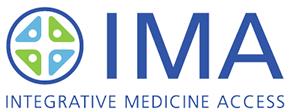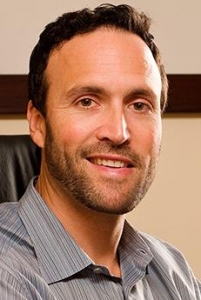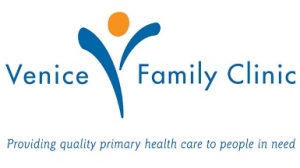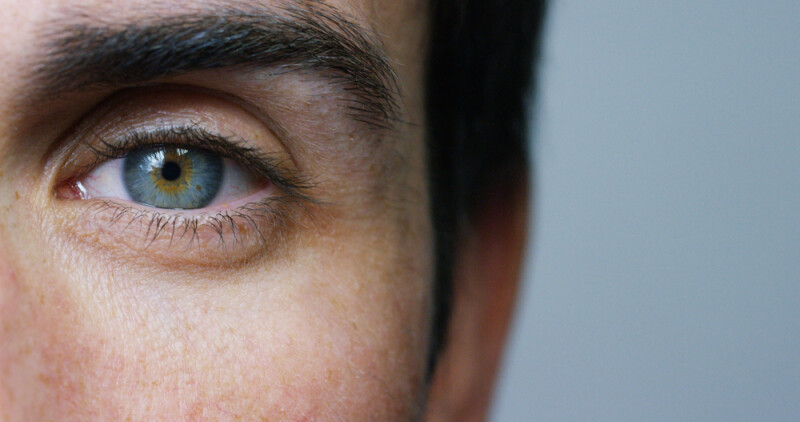Serving the underserved via the National Practitioner Integrative Medicine Access Initiative
November 4, 2016
by John Weeks, Publisher/Editor of The Integrator Blog News and Reports
In 1993, a survey out of Harvard thrust public use of “unconventional medicine” into the minds of mainstream medical stakeholders. The same survey found that most of the use was paid out-of-pocket. Better off and higher educated people were the highest users. The movement was branded as dabbling in health among the rich. While high-income suburban boutique practices locked in the image, many social justice oriented integrative practitioners rebelled against the stigma. Now a new national program, Integrative Medicine Access (IMA), gives integrative practitioners a chance to directly participate in removing the field’s blemish. In the driver’s seat of IMA is Myles Spar, MD, MPH, pictured, an integrative medicine practitioner from Los Angeles. Spar presented on IMA November 2, 2016 in San Diego at the annual meeting of the Academy of Integrative Health and Medicine. He started by asking participants a series of simple, pandering questions: Do you think integrative medicine is the future of medicine? Do you think integrative medicine is a means to lower costs? Quick assent all around. Then: “How many of you think integrative medicine is only for the rich?”
survey found that most of the use was paid out-of-pocket. Better off and higher educated people were the highest users. The movement was branded as dabbling in health among the rich. While high-income suburban boutique practices locked in the image, many social justice oriented integrative practitioners rebelled against the stigma. Now a new national program, Integrative Medicine Access (IMA), gives integrative practitioners a chance to directly participate in removing the field’s blemish. In the driver’s seat of IMA is Myles Spar, MD, MPH, pictured, an integrative medicine practitioner from Los Angeles. Spar presented on IMA November 2, 2016 in San Diego at the annual meeting of the Academy of Integrative Health and Medicine. He started by asking participants a series of simple, pandering questions: Do you think integrative medicine is the future of medicine? Do you think integrative medicine is a means to lower costs? Quick assent all around. Then: “How many of you think integrative medicine is only for the rich?”  Spar is spear-heading IMA’s campaign to make sure that the answer to that question is absolutely not. As described on IMA’s website, the IMA’s mission “is to facilitate accessibility to integrative medicine among low-income and medically underserved people.” IMA’s strategy “brings together people who would benefit from seeing integrative health professionals, but who could normally not afford the cost of their services, with professionals who will treat such people for a reduced fee.” IMA asks practitioners to donate a visits at $20 for a first office call and $10 for visits with the same patient thereafter. The payment by the patient guarantees that their use of services is meaningful and that they have skin in the game. IMA asks participating practitioners “to be open to donating 10% of your billable time (typical client load) to verified low-income IMA clients.” Spar is working with community health centers and others to make IMA known in order that these administrators and practitioner can help get
Spar is spear-heading IMA’s campaign to make sure that the answer to that question is absolutely not. As described on IMA’s website, the IMA’s mission “is to facilitate accessibility to integrative medicine among low-income and medically underserved people.” IMA’s strategy “brings together people who would benefit from seeing integrative health professionals, but who could normally not afford the cost of their services, with professionals who will treat such people for a reduced fee.” IMA asks practitioners to donate a visits at $20 for a first office call and $10 for visits with the same patient thereafter. The payment by the patient guarantees that their use of services is meaningful and that they have skin in the game. IMA asks participating practitioners “to be open to donating 10% of your billable time (typical client load) to verified low-income IMA clients.” Spar is working with community health centers and others to make IMA known in order that these administrators and practitioner can help get  their clientele to discover IMA and how to access the network. Spar knows this community. His long-time practice is at the Venice Family Clinic where for years he has led efforts to create collaborations and partnership that allow that clinic to provide integrative services for the underserved. In 2013, Spar received the $100,00 Bravewell Leadership Award – his introduction by Mehmet Oz, MD and you-tube acceptance speech is here. Spar used the award to kick off IMA. The method rests on a smart online connectivity. Practitioners can sign up there. The program also allows limited though useful data to be gathered. Spar believes that, in time, such data will build the case for integrative medical services for this value and others. “We are about access,” he told the San Diego AIHM crowd. He added: “We are also about research and coordination. Evaluation is a key to everything we do.” Comment: When I speak to the roots of the movement toward integrative health and medicine in the 1960's, I share my view that it is connected to globalism and social justice. For me and many others, that our friends in progressive action sometimes paint this off as medicine for the wealthy is chronically disquieting. Spar’s vision follows regular medicine’s historic mission to serve those who come in need, regardless of the means or ability to pay. The commitment of 10 percent resonates with tithing levels across multiple faiths – the fundamental value of blessing one’s own good luck and giving back, of giving to oneself by giving to others. Go to the Integrative Medicine Access website. Sign up. Let address the economic imbalance that exists in the field.
their clientele to discover IMA and how to access the network. Spar knows this community. His long-time practice is at the Venice Family Clinic where for years he has led efforts to create collaborations and partnership that allow that clinic to provide integrative services for the underserved. In 2013, Spar received the $100,00 Bravewell Leadership Award – his introduction by Mehmet Oz, MD and you-tube acceptance speech is here. Spar used the award to kick off IMA. The method rests on a smart online connectivity. Practitioners can sign up there. The program also allows limited though useful data to be gathered. Spar believes that, in time, such data will build the case for integrative medical services for this value and others. “We are about access,” he told the San Diego AIHM crowd. He added: “We are also about research and coordination. Evaluation is a key to everything we do.” Comment: When I speak to the roots of the movement toward integrative health and medicine in the 1960's, I share my view that it is connected to globalism and social justice. For me and many others, that our friends in progressive action sometimes paint this off as medicine for the wealthy is chronically disquieting. Spar’s vision follows regular medicine’s historic mission to serve those who come in need, regardless of the means or ability to pay. The commitment of 10 percent resonates with tithing levels across multiple faiths – the fundamental value of blessing one’s own good luck and giving back, of giving to oneself by giving to others. Go to the Integrative Medicine Access website. Sign up. Let address the economic imbalance that exists in the field. 



















SHARE